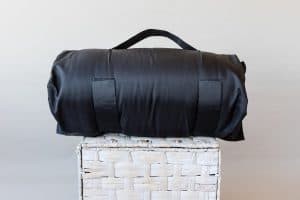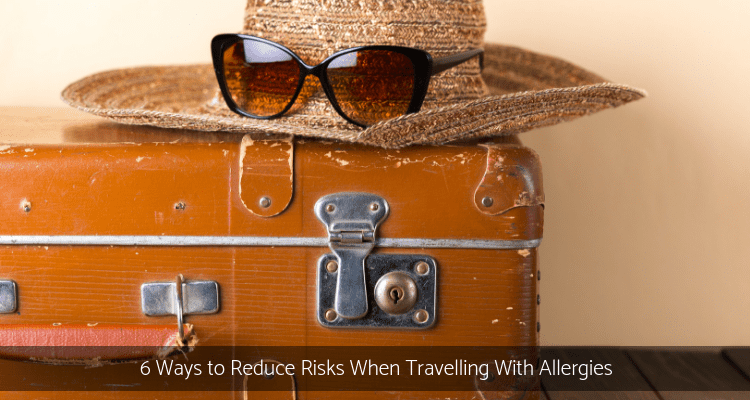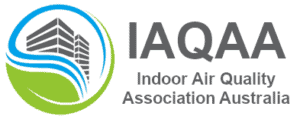Does your fear of allergies keep you from travelling on business or planning a road trip with the family? Don’t let outdoor allergens prevent you from travelling and living life to the fullest. While travelling with allergies can be unnerving you can take several steps to controlit.
Tips on Travelling With Allergies
Medication
If you are allergic to pollen, pet dander, and dust (the most commonly occurring allergens in the external environment), carry more than the usual supply of your allergy medications. Seek advice from your doctor on additional symptom-control medications that you need to take before going on the trip.
When travelling internationally, it’s a good idea to carry a letter from your doctor which mentions your allergies and the prescribed medications.
Precautions during transportation
- Check with your airline for availability of allergy-free meals and snacks.
- To reduce exposure to allergens on the flight, carry your own pillow and blankets.
- Request for buffer in seating from other passengers.
- If you need to take medicines at frequent intervals, set reminder alarms on your mobile.
- Carry a moisturising saline spray to ease nasal irritation caused by dryness of nasal passage during long flights.
- If you are going on a road trip, carry the vacuum to clean the car regularly. Also, keep the car air vents closed to prevent external pollutants and allergens from entering the car.
PRODUCT:
Sleep Keeper Pillow Carrier
A versatile water-resistant travel bag will compact your pillow so it can easily travel with you.
If you like to travel with a pillow but find it a challenge to fit it in your luggage or carry it under your arm… Then the SleepKeeper is for you!

Your holiday destination list thus far:
- Wear sunglasses to protect your eyes
- Keep windows closed both at your accommodation and particularly when in your car
- Where possible use recirculating air conditioning in your car
- Do not picnic in parks or in the country during the pollen season
- Try to plan your holidays out of the pollen season or holiday at the seaside
- Rinse your eyes frequently with water
- Carry a supply of tissues
Staying at the hotel
- Request for a non-smoking and animal-free hotel room.
- Use your own hypoallergenic pillows.
- Carry dust mite-proof allergy covers for pillows and mattresses.
- Pack some allergy-free food supplies.
- If possible, close the hotel room air conditioner vent.
- Choose a hotel that is willing to accommodate your food allergies in their meal preparations.
Dampness is more likely to occur in modern buildings, which are crowded and lack appropriate ventilation, may have higher levels of microbial pollution that involve hundreds of species of bacteria and fungi that grow indoors easily according to Byoung-Ju et al. (2014). The researchers discuss that exposure to such microbial contaminants is associated clinically with respiratory symptoms, allergies, asthma and immunological reactions.
There are several environmental factors that may influence the development of allergic allergic responses such as rhinitis, including bacterial exposures from hygiene, farm residencies, exposure to children, endotoxins, air pollution, and environmental toxicants according to Dunlop et al. (2016)
Your holiday destination
- If you suffer from hay fever, plan a beach-side holiday or a cruise to minimise exposure.
- Check pollen counts at your destination and ask your doctor for specific suggestions based on your travel destination.
- Identify allergy clinics in the surrounding areas, so you can get medical help if needed.
Eating out
- A safe rule to follow during travelling is ‘When in doubt, don’t eat it’.
- Read labels on foods and drinks carefully, before consuming any product.
- When eating out, use wipes to clean the surfaces (table and cutlery).
- Ask the restaurant server for detailed information on dish ingredients.
Other tips
- Don’t skip your exercise routine during travel. Staying fit will help in maintaining your existing immunity levels.
- When travelling to a non-English speaking country, learn a few help phrases or write them out on index cards.
- Early morning flights are better as the presence of pollutants is minimal at that time of the day.
- Similarly, plan the outdoor family activities early in the day to reduce exposure to air pollutants.
- Share information on your allergies with everyone, including your travel planner, the airline hotel and hotel staff and the car rental company.
Travelling with allergies is possible provided you plan your trip and take a few precautions while exploring. Enjoy your next trip.
Towards healthier living, Carol Parr ♥
As a result of working with me, women and their families thrive, work places and their personnel prosper, mouldy and chemical / electrical sensitive occupants heal. They’re healthier, they’re alert, they’re happier, more relaxed, more productive, and enjoying life.
Together we bring about healthy indoor environments and create rooms that provide calmness, healthy sleep, relaxation and restored energy for you and your family, create workplaces that provide ideal personnel attendance and elevated productivity.
By returning indoor spaces to more natural conditions, we strengthen you and your family and your personnel’s mind, body and spirit. It’s nice that it also sustains our planet’s ecology, you’d agree.
You can find my latest enterprises by clicking here: http://www.linkedin.com/in/carolparr
References
Kim, B., Lee, S., Kim, H., Lee, E. and Hong, S. (2014). Environmental Changes, Microbiota, and Allergic Diseases. [online] US National Library of Medicine National Institutes of Health. Available at: https://www.ncbi.nlm.nih.gov/pmc/articles/PMC4161679/ [Accessed 11 Sep. 2017].
Dunlop, J., Matsui, E., & Sharma, H. P. (Accepted/In press). 2016. Allergic Rhinitis. Environmental Determinants. Immunology and Allergy Clinics of North America. https://doi.org/10.1016/j.iac.2015.12.012 [Accessed 10 Sep. 2017].
Author
-
We’re glad you’re here. We’re Carol and Tony, founders of one of the longest running Healthy Home Blogs in the world, Mitey Fresh Australia. We’ve been on this journey for the last 25 years and are passionate about helping families sift through health hazards and triggers like allergens, mould, water damage, chemicals and EMFs, to get clarity about what’s toxic and what’s not so they can create a healthy and happy home for their family they love. Each month, people visit this blog seeking focus on the health and wellbeing of their loved ones, sustainable and effective practice tips and guides, to help create and manage healthier indoor spaces, improve the built environment that is pleasing to the senses and support healthy living and nature, every day. Starting this blog was to help change people’s lives, one family at a time, and we can’t wait to share how its allowed us to stand next to you and show you how interpreting these synergies between buildings and the environment they are built in will impact upon the health and well-being of those who occupy them. Find out more about Healthy Homes and what this blog can do for you!





